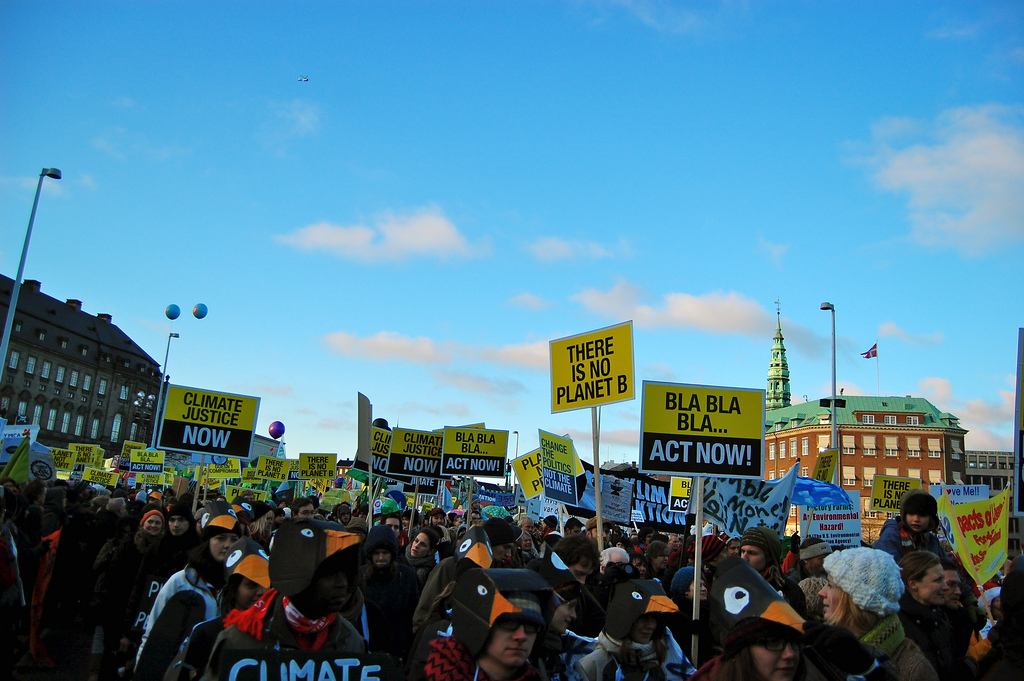This piece is cross-posted from WeArePowerShift.
As youth delegates from SustainUS, we work to represent the youth of the US climate justice movement within the United Nations’ debates on climate change. In this capacity, we travel to the UN climate change negotiations every year. There, we aim to make change both in the outcome text of the negotiations and in the media narrative surrounding international climate policy. This December, we will attend COP20 in Lima, Peru, and we’re already full of ideas for what we’d like to see. Ask any one of us and we can tell you what we’re hoping for on a personal level. Our list of demands in these negotiations is as diverse as our personal backgrounds, the immediate needs of our communities, and our hopes for a more just, sustainable shared future.
But every year, progress is slow, and watching the ideas you care about called into question again and again is discouraging. And when the negotiations completely fall apart, like they did at COP15 in Copenhagen in 2009, it can be utterly heartbreaking. Whether you’re in the talks or watching media coverage back home, watching your home country’s negotiators often produces the same reaction: How could they do something like this?
The answer to that question is one of the reasons the People’s Climate March matters. There’s nothing wrong with the individual people representing the United States in the room at COP. They aren’t evil people, or climate deniers seeking to actively undermine the talks. They’re decent human beings just trying to do their jobs. They’re trapped in a world of severe political constraints, because everything they agree to in the context of the UN must be something that can survive back in the United States. That’s the sticking point. For the vast majority of US politicians, climate change is, at best, an issue to be avoided, and at worst, something to deny to win quick political points.
But there’s a misunderstanding on their part. The people who represent you, at the UN and in Congress, think you don’t care about climate change. And until US politicians truly believe their constituents care about climate change, the US will remain unambitious in UN talks. Continuing the current state of affairs means more precious time is passing without international action on one of the most critical issues of our time. Every day that goes by with politicians believing that their constituents don’t care how they act on climate means another day negotiators are bound by a lack of political will when they travel to COP. Without a change, political gridlock will continue to prevent US leadership on climate change.
This is why the People’s Climate March is so important. Action at the UN will not happen without outside pressure. Americans, and especially youth, who will feel the impacts of climate change more acutely than any other generation before us, must apply that pressure. We must demonstrate our commitment to this issue, and build a broader stronger movement than ever before to call for climate justice and a better world.
Come to New York and show the people who represent you how much you care about acting on climate change. Members of Congress, State Department officials, and President Obama: By the time we’re done marching, they will not doubt what we value, or question how strong our convictions are. Come if you are able, follow the March on social media, and tell your friends and family. The impacts could be global.


